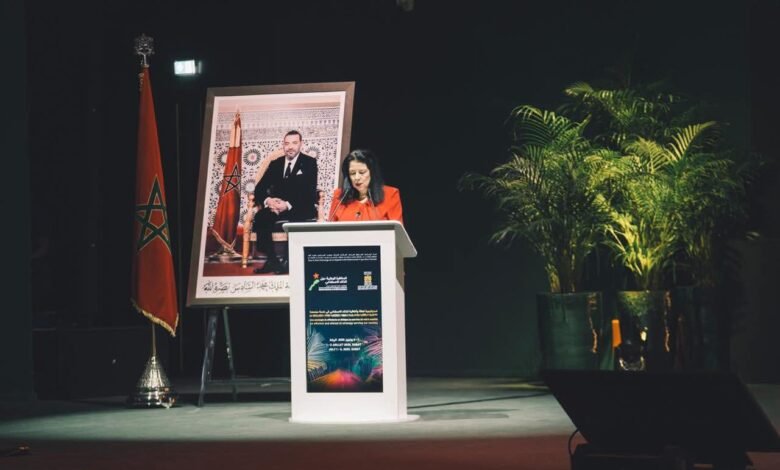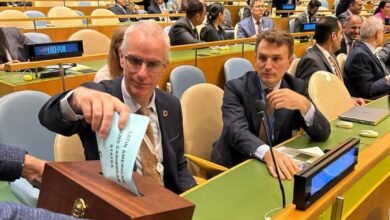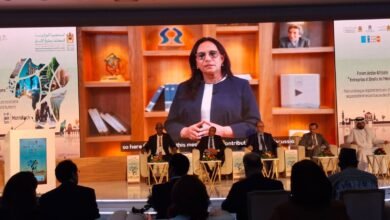Morocco Asserts Its AI Sovereignty at First National Artificial Intelligence Conference

Morocco inaugurated its first National Conference on Artificial Intelligence in Rabat. Organized under the High Patronage of His Majesty King Mohammed VI by the Ministry of Digital Transition and Administrative Reform, the two-day event was held at Mohammed VI Polytechnic University under the theme “An Efficient and Ethical AI Strategy Serving Our Society.”
The opening session was chaired by Amal El Fallah Seghrouchni, Minister Delegate in charge of Digital Transition and Administrative Reform, and was attended by high-level figures including André Azoulay, advisor to His Majesty the King; Mohamed Ould Rachid, President of the House of Councillors; several government ministers; heads of constitutional institutions; and accredited ambassadors.



The conference aimed to define the contours of a sovereign and inclusive national strategy for artificial intelligence, adapted to Morocco’s societal needs and strategic priorities. Over the course of two days, the event brought together policymakers, researchers, entrepreneurs, and civil society actors, united by a shared conviction: artificial intelligence is not just a technological shift, but a central pillar of Morocco’s future development.
Prime Minister Aziz Akhannouch described the event as “a pivotal moment” for the country. He emphasized the need for a clear and decisive strategy in a world where AI is reshaping economic and geopolitical balances. Referring to Morocco’s strong digital infrastructure—with 103% internet penetration and over 38 million mobile subscriptions—he noted that the country has a solid foundation for digital transformation. He also pointed to projections of 240,000 AI-related job opportunities by 2030 and the training of 100,000 digital talents. “AI must not replace human intelligence—it must enhance it,” he said.
Several members of the government addressed the various dimensions of AI integration. Leila Benali, Minister of Energy Transition and Sustainable Development, highlighted the essential link between AI and energy systems, stressing the importance of reliable and sustainable infrastructure to support intelligent technologies. She also pointed to AI’s potential in optimizing resource management, especially within the context of Morocco’s growing renewable energy sector.
Mohamed Saad Berrada, Minister of National Education, Preschool, and Sports, characterized the current state of AI in Moroccan education as “a baby in gestation.” The expression captured both the early stage and the potential of AI to transform learning. He emphasized the importance of embedding digital skills and technological literacy from an early age to ensure long-term readiness.
Younes Sekkouri, Minister of Economic Inclusion, Small Business, Employment, and Skills, called for an inclusive approach that enables all citizens—particularly young people—to understand and benefit from AI. He stressed that technology must serve as a vehicle for social equity and opportunity, not exclusion.
Representing the private sector, Chakib Alj, President of the General Confederation of Moroccan Enterprises (CGEM), urged a coordinated national response to meet the training needs of the evolving economy. He called for the expansion of specialized educational institutions, particularly in fields like healthcare and higher education, to support the development of a skilled workforce capable of sustaining a robust AI ecosystem.
The first day of the conference was devoted to technical sessions and showcases by AI-powered startups, highlighting real-world applications across sectors such as agriculture, health, and education. The second day focused on the political and international dimensions of AI, addressing key issues such as algorithmic transparency, data protection, and the fight against disinformation.
Throughout the conference, Morocco’s leadership emphasized that the country does not intend to passively adopt foreign models. “We will build a Moroccan model of AI, rooted in our values of inclusion and shared progress,” said Prime Minister Akhannouch. That vision is supported by tangible priorities, including ethical governance of algorithms, citizen data protection, and long-term investment in national expertise.
Far from being a symbolic gesture, the National Conference on Artificial Intelligence marked Morocco’s entry into a new phase—one where AI is not only embraced but shaped to reflect national sovereignty, ethical integrity, and human-centered progress. As Akhannouch concluded, “The future is not something we endure—it’s something we build. And we have chosen to build it with determination, intelligence, and humanity.”





